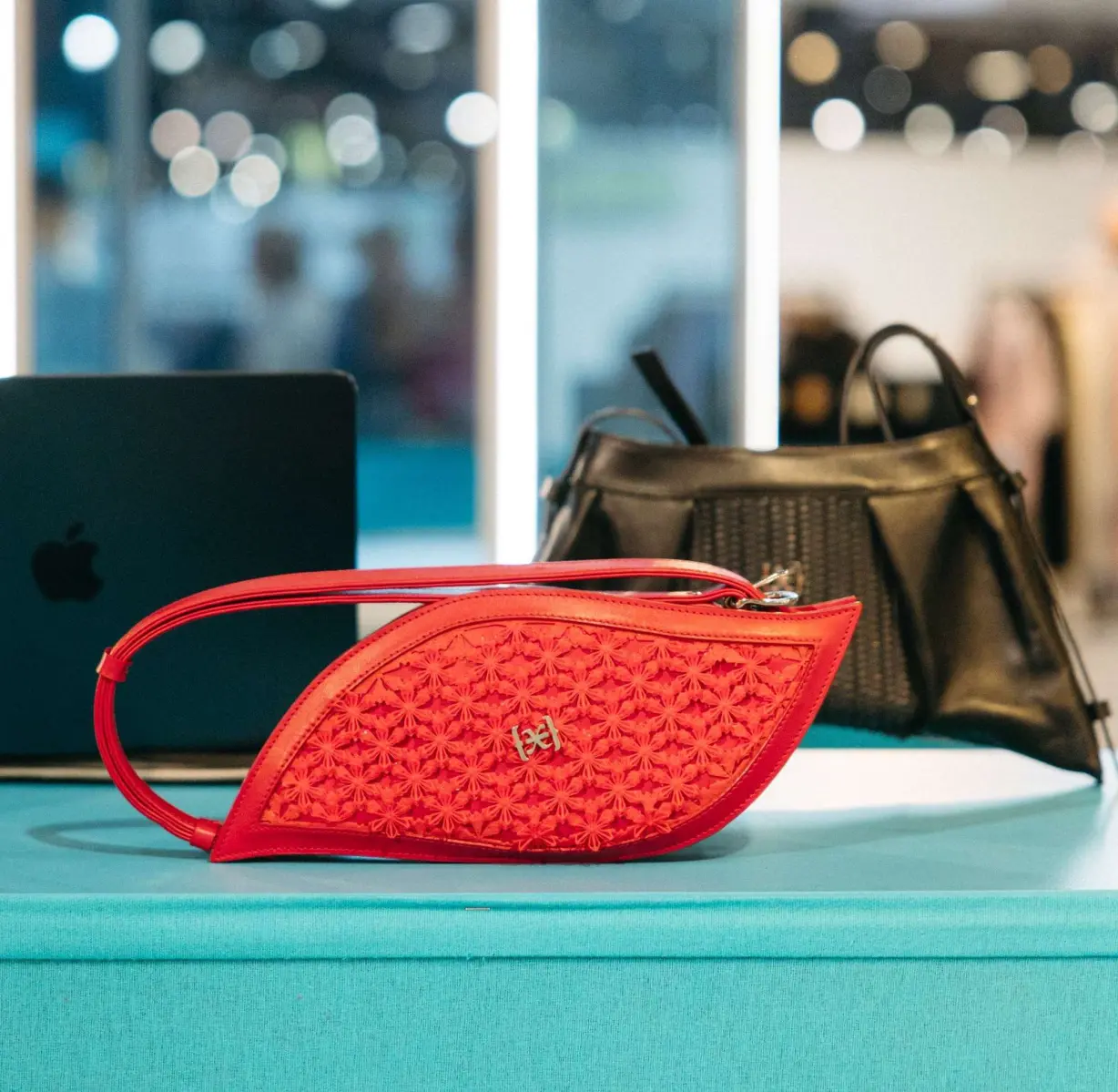INCXNNUE: where innovation is a craft
This young, independent brand is rethinking creation by fostering a dialogue between craftsmanship and new technologies.

If it doesn’t exist, then make it. That’s the idea behind INCXNNUE, a handbag brand founded by Laura Deweilde that combines 3D printing and traditional craftsmanship. “I was fascinated by 3D printing, which I had learnt at fashion school” she says, “But I couldn’t find any brand that used it and where I could have worked”. She’s now presenting her own designs on the Who’s Next Lab, a new space dedicated to all the new forms of fashion design.
Craftsmanship at the forefront of innovation
INCXNNUE smartly blends an innovative practice that struggles to become mainstream with traditional savoir faire. A challenge that requires venturing off the beaten track and diving into the unknown. “We focus on exploring techniques, shapes but also materials, such as oyster shell-based fiber or a kind a silicone made from grape anthocyanins. None of these were originally intended to be used in fashion.” Yet they’ve become the core materials for curved and angled futuristic handbags, whose 3D printed patterns have already charmed the costume designers of Emily in Paris, among others.
More than taking a leap into the future, Laura Deweilde tackles an important challenge for the fashion industry: how to make craftsmanship evolve to follow the pace of innovation? “Many leatherworkers still refuse to assemble bags with 3D printed materials, because it requires them to change some of their habits. That’s the challenge: managing to build a dialogue and work together in order to make the techniques evolve.” Creating within the constraints of 3D printing thus opens new pathways to merge design and technique, right from the initial sketches.

Teaching and passing on to shape the future
But embedding innovation within the system also implies sharing knowledge. This is why Lucie Deweilde now works with fashion schools, where she teaches students all about 3D printing and the design possibilities it offers. “School is the one place where you can explore before specializing. The advantage of 3D printing is that it really allows you to experiment, even through mistake. That’s also where unexpected inspiration comes from.”
And where bridges between different creative sectors can be built. At the Who’s Next Lab, Lucie Deweilde also presents Kosmos, a 3D lighting brand she co-founded with Gauthier Combes. With a common thread: innovation and its ability to break barriers and create meaningful links between disciplines that are more intertwined than ever. A clever way of bringing ancestral know-how into a fertile future, thanks to the alliance of inspired, young designers, new technologies and manufacturers keen to renew traditional crafts.